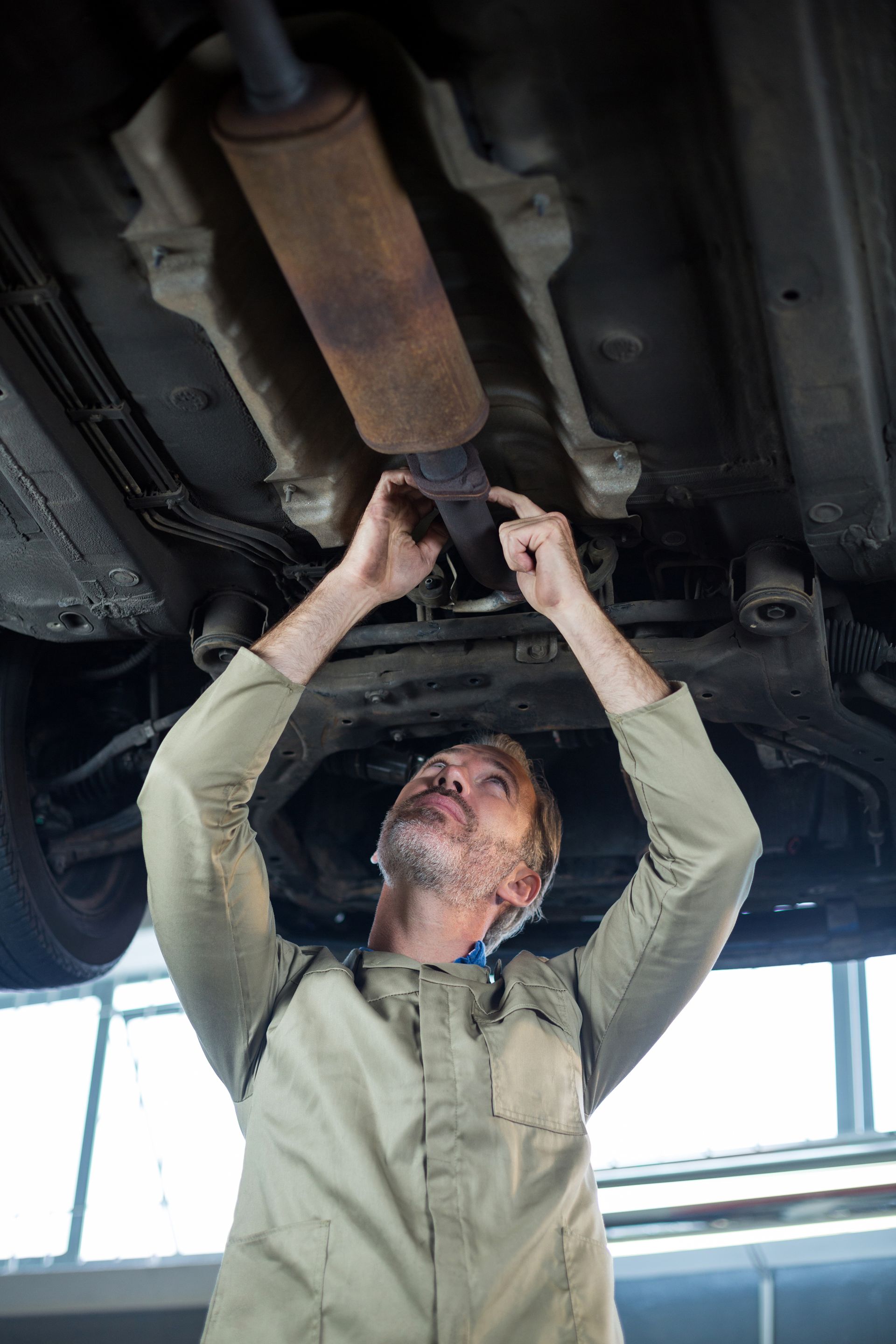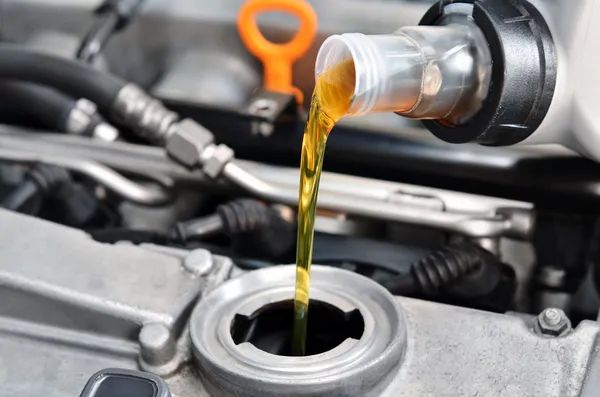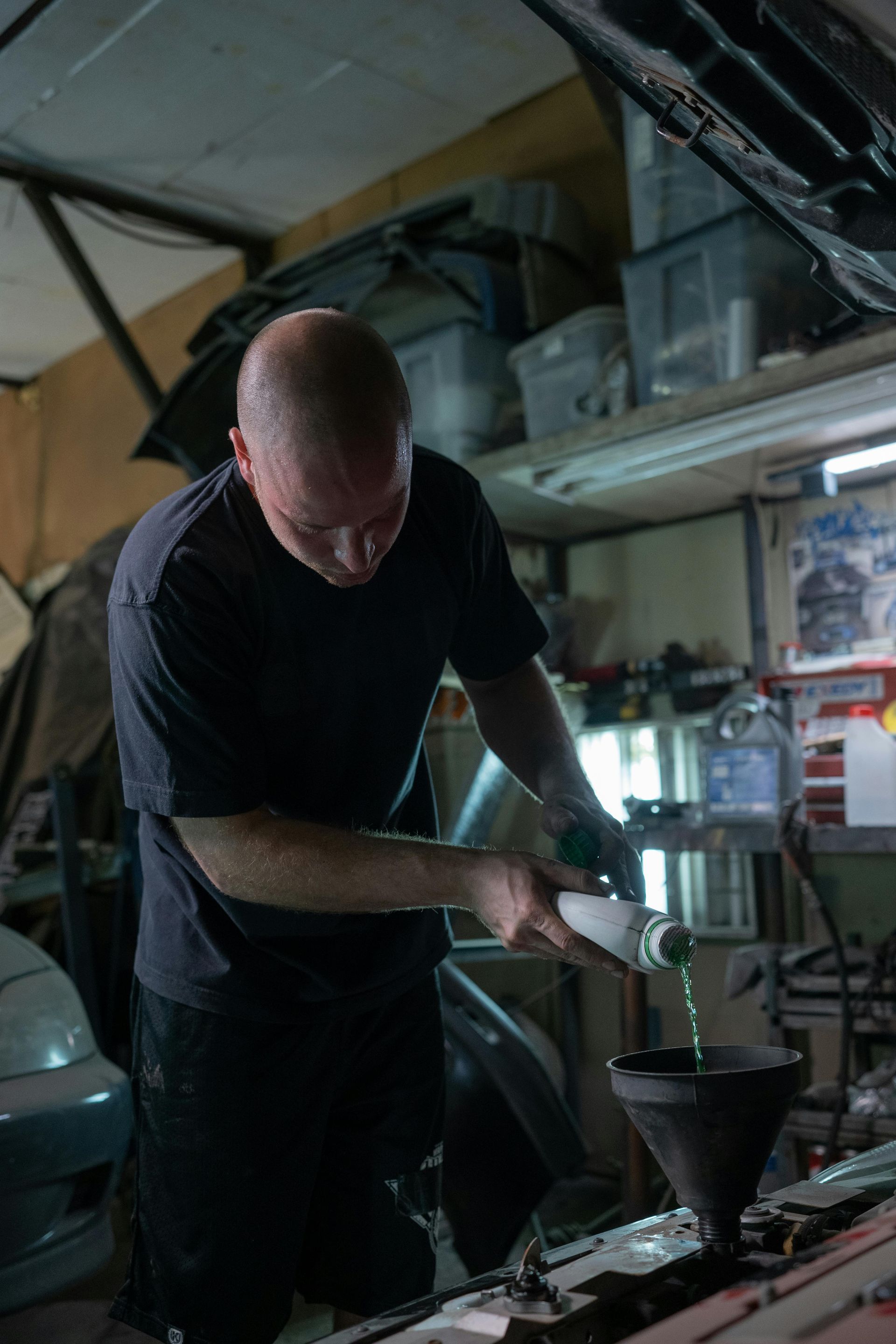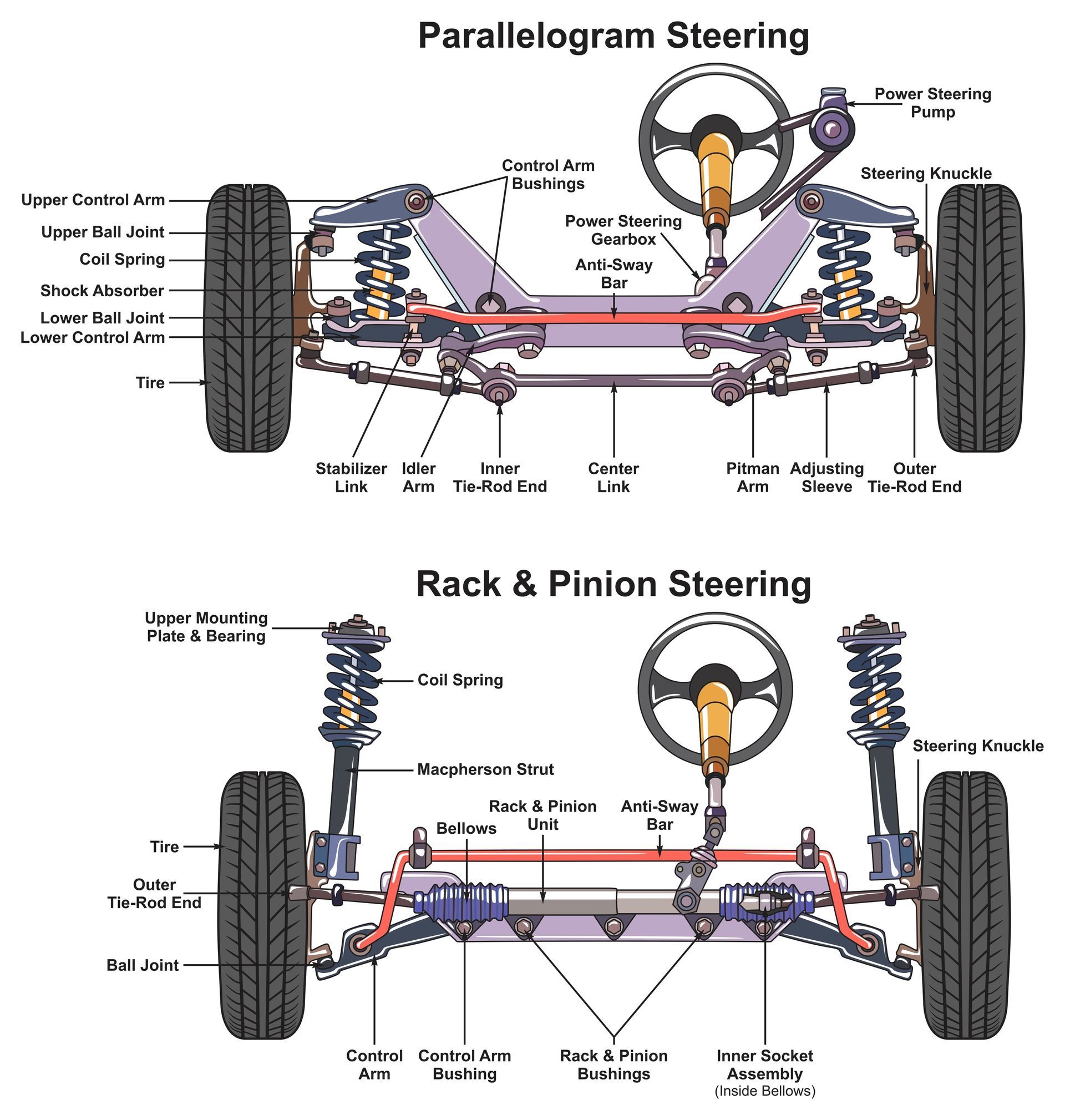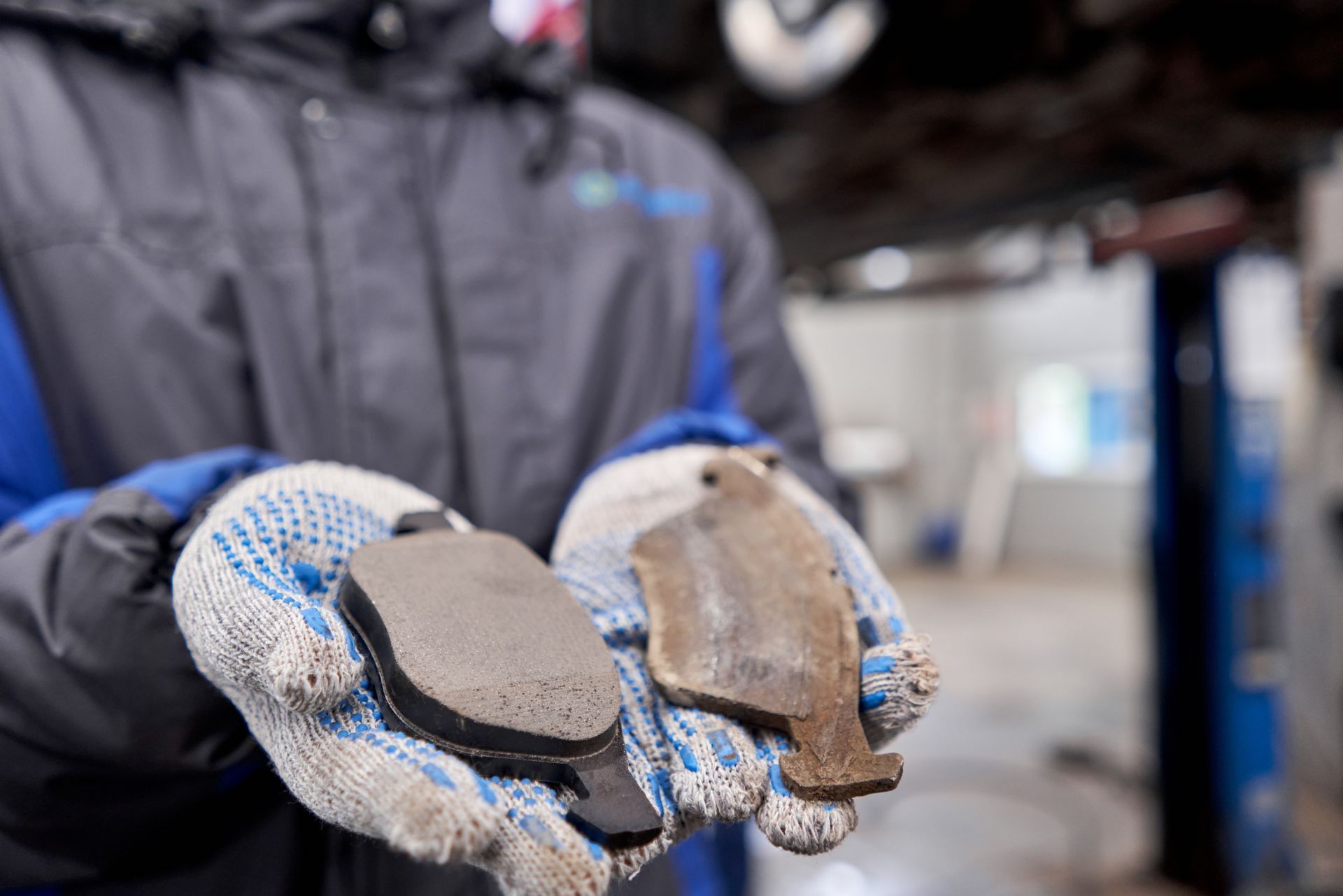There’s nothing worse than getting into a hot car after a long day, only to find out that the AC isn’t working properly.
Using your AC regularly can cause wear and tear, and like any machine, it can have problems over time.
Knowing when to seek professional help can significantly enhance your driving experience and extend the life of your vehicle. This is where a reliable auto AC repair shop comes into play.

A reputable shop will not only diagnose the problem accurately but also provide quality repairs to ensure your system operates efficiently.
In this guide, we’ll look at common signs that your car's AC might be having issues, how to spot them, and why
picking the right auto repair shop is important for your car’s maintenance.
1. Not Enough Cool Air
One clear sign that your car’s AC isn’t working right is if it doesn’t blow cool air. If the air coming from your vents isn’t as cold as before, there could be a problem. This might be due to low refrigerant, a failing compressor, or a blocked condenser.
What to Do:
- Check Refrigerant Levels: Low refrigerant can affect cooling. You can check this with a gauge or take your car to a professional.
- Look for Leaks: Check for any oily spots near the AC parts, which might indicate a refrigerant leak.
2. Bad Smells
If your car's AC gives off a bad smell when turned on, it might mean there’s mold or mildew inside the system. This can happen when moisture builds up in the ducts. A burning smell might suggest electrical issues.
What to Do:
- Check the Cabin Air Filter: A dirty filter can cause bad odors. Replacing it can help improve air quality.
- Clean the AC System: If you think there’s mold, consider getting the system cleaned by a professional.
3. Strange Noises
If you hear odd sounds like grinding, hissing, or squealing when the AC is on, it’s important to check further. These noises can indicate problems with the compressor or something stuck in the system.
What to Do:
- Listen Closely: Pay attention to when the noises happen; this can help identify the issue.
- Consult a Mechanic: If the noises don’t stop, it’s best to have a mechanic take a look to avoid further damage.
4. Frequent On-Off Cycling
If your AC turns on and off often, it may have a problem with the thermostat or refrigerant level. This can lead to uneven cooling and extra wear on the system.
What to Do:
- Check Thermostat Settings: Make sure the thermostat is set correctly and is working right.
- Monitor Refrigerant Levels: Low refrigerant might be causing the system to cycle too frequently.
5. Water Leaks Inside the Car
A working AC system should drain water outside the vehicle. If you see water pooling inside your car, it might mean there’s a clogged drain line or other issues.
What to Do:
- Inspect Drain Lines: Make sure the drain lines are clear and not blocked.
- Look for Other Causes: If the problem continues, it might not be related to the AC and could need further checking.
6. AC Blowing Hot Air
If you turn on the AC and only hot air comes out, that’s a clear sign something is wrong. This could be due to a faulty compressor, electrical issues, or a refrigerant leak.
What to Do:
- Check the Compressor: Make sure the compressor is engaging when you turn on the AC.
- Consult a Mechanic: If you can’t find the problem, it’s best to have a professional check it out.
7. High Humidity Inside the Vehicle
A good AC system should help reduce humidity in your car. If the inside feels too humid, it could indicate that the AC isn’t working well.
What to Do:
- Check AC Settings: Ensure the AC is set to the right mode to reduce humidity.
- Inspect for Clogs: Blocked drain lines can affect how well the AC removes humidity.
8. Dashboard Warning Lights
Many modern cars have sensors that keep an eye on the AC system. If a warning light related to the AC comes on, it’s important to address it right away. This could mean various issues, from low refrigerant to more serious problems.
What to Do:
- Consult the Owner’s Manual: Look in your vehicle's manual for information on dashboard warning lights.
- Schedule a Check-Up: If a warning light comes on, have a professional check the system.
9. Reduced Airflow
If you notice that the airflow from your AC vents has decreased, it could mean there’s a blockage, a failing blower motor, or a dirty cabin air filter.
What to Do:
- Check the Cabin Air Filter: Replace the filter if it’s dirty or clogged.
- Inspect the Blower Motor: If airflow is still low, the blower motor might need checking.
10. Age of the AC System
Think about how old your vehicle and its AC system are. If your car is older and hasn’t had the AC serviced in a while, it might have more issues. Regular maintenance can help your AC system last longer and avoid problems.
What to Do:
- Schedule Regular Maintenance: Regular checks can help catch issues early and keep everything running smoothly.
- Stay Informed: Keep track of when the AC system was last serviced and any repairs done.
Take Action
Noticing the signs of a failing AC system early can save you from discomfort and costly repairs. If you experience any of the issues mentioned above, it’s important to act quickly.
At
Elite Auto Experts, we specialize in diagnosing and fixing AC problems for all types of vehicles. Our trained technicians have the skills to get your vehicle's AC system back to working order. We focus on quality service and offer warranties on our work, so you can drive with confidence.
In addition to AC repairs, Elite Auto Experts also provides engine repair &
auto body and collision repair services.
See the full list of services
here.
If your vehicle has been in an accident, our team can restore it to its pre-accident condition with precision and care. From minor dents to major collision repairs, we handle it all using the latest techniques and equipment. Maintaining both the functionality and appearance of your car ensures a better driving experience.
Don’t let a broken AC ruin your driving experience. If you think your car's AC might have issues, contact Elite Auto Experts today for quality auto AC repairs or schedule an appointment through our website.
We’re here to help you stay cool and comfortable on the road!
